The tooth fairy is a welcome guest for any child who has lost a tooth. Not only will the fairy leave a small gift under the child’s pillow, but they be assured of a replacement tooth in a few months. Unfortunately, the scenario is quite different for adults grappling with a loss of teeth. Luckily, there may be some hope thanks to a new study performed by scientists at Kyoto University and the University of Fukui.
A dental breakthrough
While the typical adult mouth houses 32 teeth, approximately 1% of the population exhibits variations of them, either possessing more or fewer teeth due to congenital conditions. Researchers have delved into the genetic factors behind cases of excessive teeth, seeking valuable insights into the potential regeneration of teeth in adults. This study is the first to show that monoclonal antibodies can help regrow teeth. It suggests a new way to treat a dental problem that currently requires implants and other artificial solutions.
A bit of science
The research team disclosed that an antibody targeting a specific gene, known as uterine sensitization-associated gene-1 (USAG-1), can induce tooth development in mice affected by tooth agenesis, a congenital condition. The findings were published in the journal, Science Advances.
As per Katsu Takahashi, a senior lecturer at the Kyoto University Graduate School of Medicine and one of the principal contributors to the study, the essential molecules crucial for the development of teeth have already been pinpointed. “The morphogenesis of individual teeth depends on the interactions of several molecules including BMP, or bone morphogenetic protein, and Wnt signaling,” says Takahashi.
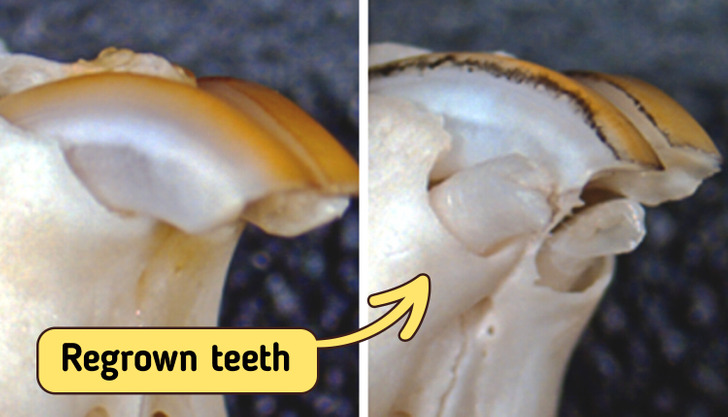
On April 13, 2021, the University of Kyoto posted its first pic of newly-grown teeth in mice.
BMP and Wnt are involved in more than just tooth development; they affect the growth of organs and tissues early in the body’s development. Because drugs affecting them directly might have broad side effects, scientists are cautious. To find a potentially safer method, researchers focused on the gene USAG-1, thinking that aiming at factors countering BMP and Wnt specifically in tooth development could be more precise.
“We knew that suppressing USAG-1 benefits tooth growth. What we did not know was whether it would be enough,” added Takahashi.
The first results
Scientists looked at how different monoclonal antibodies affect USAG-1. Monoclonal antibodies are often used to treat things like cancer and arthritis and for making vaccines. Tests with this antibody showed that BMP signaling is crucial for deciding the number of teeth in mice. Also, just one treatment was enough to grow a whole tooth. Further tests confirmed these positive results in ferrets too.
“Ferrets are diphyodont animals with similar dental patterns to humans. Our next plan is to test the antibodies on other animals, such as pigs and dogs,” explained Takahashi.
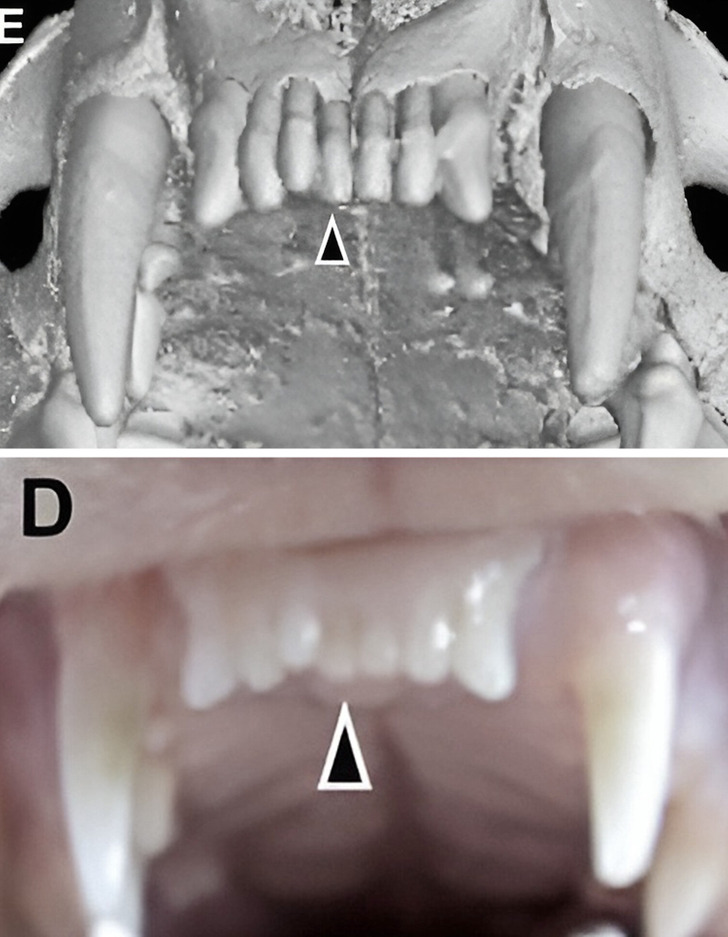
Fully regrown frontal teeth in ferrets
The next steps
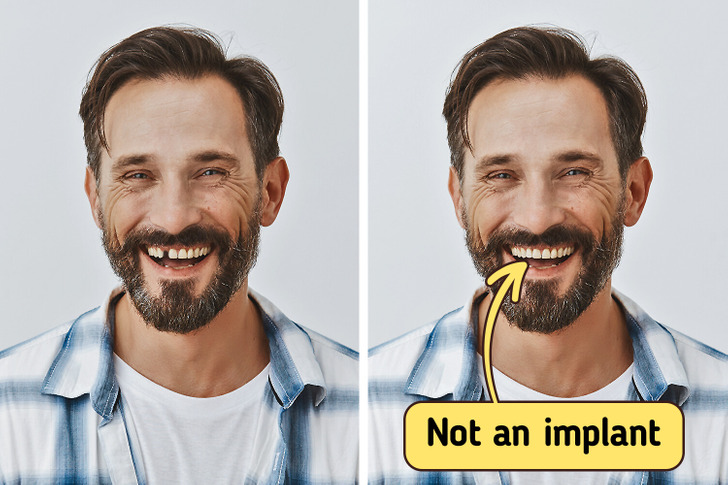
Now, scientists are going to test the drug on healthy adults. If that goes well, the team plans to try it on kids aged 2 to 6 with a rare tooth problem called anodontia, a genetic disorder defined as the absence of all teeth. These kids will get one shot of the drug to see if it makes their teeth grow. If everything works out, the medicine might be approved by 2030.
Takahashi sees the new medicine as an additional choice for individuals who are missing some or all of their teeth.
“The idea of growing new teeth is every dentist’s dream,” Takahashi told the Japanese newspaper, The Mainichi in June this year. “I’ve been working on this since I was a graduate student. I was confident I’d be able to make it happen.”
So hopefully, by the year 2030, humans will get a chance to have their third generation of teeth grown and say goodbye to implants. Until then, make sure to keep your teeth strong and healthy — this article will help you with that.
Preview photo credit KyotoU_News / Twitter
Minha madrasta roubou US$ 5.000 do meu fundo de faculdade para instalar facetas em si mesma — o carma a atingiu com força

Quem rouba da filha? Minha madrasta roubou. Ela roubou US$ 5 mil do meu fundo de faculdade para facetas. Para um sorriso perfeito de Hollywood. Mas o carma atingiu mais rápido do que uma broca dentária, deixando-a com mais arrependimento do que glamour.
Dizem que dinheiro não compra felicidade, mas minha madrasta certamente pensou que poderia comprar um sorriso de um milhão de dólares. O problema? Ela roubou do meu fundo de faculdade (que foi criado pela minha falecida mãe) para instalar suas facetas e agiu como se não fosse grande coisa. Mas não se preocupe! Sente-se, relaxe e deixe-me contar sobre o dia em que o carma criou dentes e mordeu de volta.
Uma adolescente angustiada perdida em pensamentos profundos | Fonte: Midjourney
Uma adolescente angustiada perdida em pensamentos profundos | Fonte: Midjourney
Eu sou Kristen, uma garota comum de 17 anos com sonhos maiores que o ego da minha madrasta. Minha mãe faleceu quando eu era jovem, mas ela deixou um fundo para a faculdade. Não era muito, mas foi um começo para garantir meu futuro.
Meu pai, Bob, e eu fomos acrescentando desde então, principalmente com meus bicos de meio período dando aulas particulares para crianças que acham que “Pi” é algo que você come com sorvete. E um pouco de babá, que me pagava semanalmente.
Tudo correu bem até que, ta-da — entra Tracy, minha madrasta e a personificação humana de um bastão de selfie.
Uma elegante senhora idosa segurando uma taça de vinho | Fonte: Pexels
Uma elegante senhora idosa segurando uma taça de vinho | Fonte: Pexels
Essa mulher passa mais tempo na frente do espelho do que um mímico fingindo estar preso em uma caixa. Juro, se vaidade fosse um esporte olímpico, Tracy faria Narciso parecer um amador.
Ela é tão obcecada com as aparências. Suas roupas, cabelos e unhas sempre têm que estar perfeitos. É como se ela estivesse tentando ser uma Barbie da vida real. (Desculpe, Barbie!)
Ela passa horas na frente do espelho, mas nunca tem tempo para nada que realmente importa, como, ah, sei lá, ser um ser humano decente. É como se ela tivesse um espelho instalado no cérebro.
Uma mulher idosa aplicando batom | Fonte: Pexels
Uma mulher idosa aplicando batom | Fonte: Pexels
Um dia fatídico, cheguei em casa e encontrei Tracy sorrindo como se tivesse acabado de ganhar na loteria.
“Kristen, querida!” ela gorjeou, sua voz mais doce que a dieta de um beija-flor. “Adivinha o que sua madrasta maravilhosa vai fazer?”
Eu levantei uma sobrancelha. “Finalmente aprendeu a usar a máquina de lavar sem inundar a lavanderia?”
Uma jovem cruzando os braços | Fonte: Midjourney
Uma jovem cruzando os braços | Fonte: Midjourney
O sorriso de Tracy vacilou por um microssegundo antes de retornar com força total. “Não, boba! Vou colocar facetas! Não é fabuloso?”
“Uh, parabéns?”, murmurei, me perguntando por que isso justificava um anúncio tão amplo.
“Oh, não fique tão triste!” ela disse efusivamente. “Isso é motivo para comemoração! E a melhor parte? Eu encontrei uma maneira de fazer isso acontecer sem gastar muito.”
Foi quando meu estômago caiu mais rápido que um paraquedista com um paraquedas defeituoso. “O que você quer dizer?”
Uma mulher idosa sentada no sofá | Fonte: Pexels
Uma mulher idosa sentada no sofá | Fonte: Pexels
O sorriso de Tracy se alargou como o do gato de Cheshire, exceto que seus dentes pareciam mais um conjunto de cones de construção mergulhados em mostarda.
“Bem, peguei um pouco emprestado do seu fundo para faculdade. Só $5.000!”
Fiquei ali, boquiaberto, sentindo como se tivesse levado um soco da Fada do Dente com esteroides. “Você fez O QUÊ? Você ROUBOU meu fundo para a faculdade?”
Tracy revirou os olhos dramaticamente. “Roubou? Eu sou da família. Não é grande coisa, querida!”
Uma adolescente chocada | Fonte: Midjourney
Uma adolescente chocada | Fonte: Midjourney
“Você NÃO TINHA DIREITO! Esse dinheiro é para o meu futuro. Minha mãe arranjou isso para mim.”
“Ah, poupe o teatro! É só dinheiro. E seu pai concordou com isso”, Tracy piscou.
Agora, essa era uma mentira maior do que sua futura conta do dentista. Papai não concordaria com isso nem em um milhão de anos. É mais provável que ele assista voluntariamente a uma maratona dos reality shows favoritos de Tracy.
Uma jovem furiosa franzindo a testa | Fonte: Midjourney
Uma jovem furiosa franzindo a testa | Fonte: Midjourney
Saí furiosa, batendo a porta do meu quarto com força suficiente para fazer a casa tremer. Liguei imediatamente para o papai, que ficou tão chocado quanto eu.
“Eu vou falar com ela”, ele prometeu. Nos termos do papai, isso significava “Eu vou mencionar uma vez e espero que magicamente se resolva”.
Algumas semanas depois, Tracy colocou suas facetas. Ela andava pela casa como se fosse a próxima top model da América, exibindo seus novos dentes em todas as oportunidades. Era como viver com um farol enlouquecido.
Uma jovem falando ao telefone | Fonte: Midjourney
Uma jovem falando ao telefone | Fonte: Midjourney
“Oh, Kristen”, ela arrulhou uma noite, “não se esqueça de sorrir para sua pequena turma de tutoria. Embora”, ela fez uma pausa, me dando uma olhada rápida, “talvez você devesse manter sua boca fechada. Você não iria querer assustar aquelas crianças com esses seus dentes de jacaré feios!”
Mordi minha língua com tanta força que pensei que eu poderia precisar de facetas também. “Certo”, murmurei. “Porque gastar cinco mil em helicópteros falsos é totalmente normal, certo?”
Os olhos de Tracy se estreitaram. “Cuidado, Missy. Lembre-se de quem coloca um teto sobre sua cabeça.”
“Tenho quase certeza de que ainda é o papai”, respondi, batendo a porta atrás de mim.
Uma porta fechada no andar de cima | Fonte: Pexels
Uma porta fechada no andar de cima | Fonte: Pexels
Um mês após sua “transformação”, Tracy decidiu fazer um churrasco para exibir seus novos mastigadores para toda a vizinhança. Foi como assistir a um desastre de trem em câmera lenta, mas com mais salada de batata.
“Senhoras, juntem-se!” Tracy anunciou no dia fatídico, tilintando sua taça de vinho com uma colher. “Eu simplesmente preciso contar a vocês sobre minha transformação!”
Sim, mais como uma metamorfose de ficção científica de presas de vampiro manchadas de amarelo para um sorriso de Hollywood! Revirei os olhos com tanta força que praticamente conseguia ver meu cérebro.
Uma mulher idosa sorridente segurando uma taça de vinho e uma garrafa | Fonte: Pexels
Uma mulher idosa sorridente segurando uma taça de vinho e uma garrafa | Fonte: Pexels
“É tudo graças ao maravilhoso Dr. Kapoor”, Tracy disse com entusiasmo. “Ele não é apenas um dentista, ele é um artista! Um escultor de sorrisos! Um sussurrador de dentes!”
“Ele sussurrou para sua carteira também?”, murmurei baixinho.
Tracy continuou, alheia ao meu sarcasmo. “E, claro, alguns investimentos inteligentes tornaram tudo isso possível!”
Quase engasguei com minha limonada. Investimentos inteligentes? É isso que chamamos de roubo hoje em dia?
Duas mulheres elegantemente vestidas rindo | Fonte: Pexels
Duas mulheres elegantemente vestidas rindo | Fonte: Pexels
Nesse momento, Tracy pousou sua taça de vinho e pegou um pedaço de espiga de milho. “Vocês sabem, moças, a vida é sobre correr riscos e—”
RACHADURA!
O som ecoou pelo quintal como um tiro. Os olhos de Tracy se arregalaram, sua mão voou para a boca mais rápido do que você poderia dizer “desastre dentário”.
“Meu Deus, Tracy! Você está bem?”, uma de suas amigas suspirou.
Mas Tracy estava longe de estar bem. Ali, aninhada na manteiga de sua espiga de milho, estava uma de suas preciosas facetas e o que restava de seu dente podre. O vão em seu sorriso era tão grande que poderia engolir um pirulito inteiro!
Close-up de uma mulher chocada com um dente faltando | Fonte: Midjourney
Close-up de uma mulher chocada com um dente faltando | Fonte: Midjourney
“Eu… eu…” Tracy gaguejou, de repente parecendo que estava fazendo um teste para o papel de Sylvester, o Gato. “Ekthcuthe me!”
Ela correu para dentro de casa, deixando para trás um quintal cheio de convidados perplexos e uma enteada muito satisfeita tentando desesperadamente não cair na gargalhada.
O resultado foi mais glorioso do que eu poderia ter imaginado. Tracy se tornou uma eremita odontológica, recusando-se a sair de casa. Quando ela finalmente ligou para o Dr. Kapoor, ouvi uma conversa que foi música para meus ouvidos e unhas em um quadro-negro para os dela.
Uma jovem senhora rindo | Fonte: Midjourney
Uma jovem senhora rindo | Fonte: Midjourney
“O que você quer dizer com vai custar mais para fikth?” Tracy gritou no telefone. “Thth é sua culpa! Você disse que eles eram de alta qualidade!”
Acontece que Tracy tinha optado pelas facetas de barganha. A cereja do bolo? Ela teria que pagar uma grana alta para refazer a faceta toda! Karma, como dizem, é uma bruxa com B maiúsculo, e ela tinha acabado de dar uma surra de dentista em Tracy.
Papai, finalmente criando coragem (eu procurei por porcos voadores lá fora), confrontou Tracy naquela noite.
“Precisamos falar sobre o fundo para a faculdade da Kristen”, ele disse, com a voz firme (pela primeira vez em muuuuuuito tempo! Muito bem, papai!)
Um homem idoso franzindo a testa | Fonte: Midjourney
Um homem idoso franzindo a testa | Fonte: Midjourney
Tracy, ainda escondendo seu sorriso quebrado atrás da mão, tentou desviar. “Bob, querido, agora não é a hora. Você não pode te dizer que estou em um crithith?”
Papai se manteve firme. “Crise? Você? Não, Tracy. Isso acaba agora. Você vai pagar de volta cada centavo que tirou do fundo de Kristen. E se não puder… bem, acho que precisamos reavaliar toda essa situação.”
Pela primeira vez desde que a conheci, Tracy parecia genuinamente assustada. Era como assistir a um cervo sob os faróis (se o cervo tivesse um trabalho dentário muito ruim e um problema de fala!)
Uma mulher idosa de aparência séria sentada em uma cadeira | Fonte: Pexels
Uma mulher idosa de aparência séria sentada em uma cadeira | Fonte: Pexels
Nas semanas seguintes, Tracy se tornou uma reclusa que faria até o monge mais solitário parecer um festeiro.
A vizinhança fervilhava de fofocas sobre seu “desastre dentário”, e ela não podia aparecer sem que alguém perguntasse sobre sua “viagem milionária”.
Quanto a mim? Bem, papai cumpriu sua promessa. Ele tem trabalhado horas extras para reconstruir meu fundo para a faculdade, e Tracy tem estado suspeitamente quieta sobre seus hábitos de gastos.
Close-up de um homem segurando dinheiro | Fonte: Pexels
Close-up de um homem segurando dinheiro | Fonte: Pexels
Acho que é difícil argumentar quando você parece estar tentando assobiar através de uma boca cheia de bolinhas de gude.
Outro dia, eu a peguei olhando ansiosamente para um anúncio de revista sobre implantes dentários. Não resisti à oportunidade de uma pequena revanche.
“Ei, Tracy”, eu gritei, dando a ela meu sorriso perfeitamente imperfeito de “dente de crocodilo”. “Precisa de conselho sobre investimento?”
Ela fez uma careta e saiu pisando duro, mas juro que vi papai tentando esconder um sorriso.
Uma jovem de pé em uma sala | Fonte: Midjourney
Uma jovem de pé em uma sala | Fonte: Midjourney
Então, sim, minha madrasta roubou $ 5.000 do meu fundo de faculdade para um conjunto de dentes falsos que a fizeram soar como se ela estivesse fazendo um teste para o papel do Lobo Mau com um problema de fala. Mas no final? O carma deu a ela algo para realmente mastigar…
E eu? Aprendi que, às vezes, as coisas mais valiosas da vida não são aquelas que você pode comprar. São as lições que você aprende ao longo do caminho, e a satisfação de ver a justiça sendo feita, um verniz quebrado de cada vez.
Uma jovem deitada na cama | Fonte: Midjourney
Uma jovem deitada na cama | Fonte: Midjourney
Além disso, agora tenho material suficiente para escrever um livro de memórias best-seller: From Fangs to Fortune: How My Stepmom’s Dental Disaster Saved My College Fund”. Como é?
E quem sabe? Talvez eu até dedique à Tracy. Afinal, sem ela, eu não teria essa história deliciosa para contar.
Uma jovem senhora rindo | Fonte: Midjourney
Uma jovem senhora rindo | Fonte: Midjourney
Aqui vai outra história : Minha colega de trabalho zombou de mim por não ter filhos e exigiu que eu cobrisse seus turnos para que ela pudesse ter tempo para os filhos. Logo, ela aprendeu uma lição inesquecível.
Este trabalho é inspirado em eventos e pessoas reais, mas foi ficcionalizado para fins criativos. Nomes, personagens e detalhes foram alterados para proteger a privacidade e melhorar a narrativa. Qualquer semelhança com pessoas reais, vivas ou mortas, ou eventos reais é mera coincidência e não intencional do autor.
O autor e a editora não fazem nenhuma reivindicação quanto à precisão dos eventos ou à representação dos personagens e não são responsáveis por nenhuma interpretação errônea. Esta história é fornecida “como está”, e quaisquer opiniões expressas são as dos personagens e não refletem as opiniões do autor ou da editora.
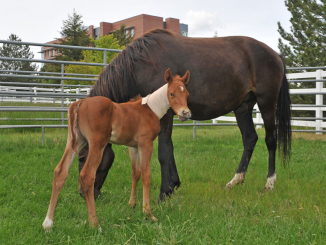
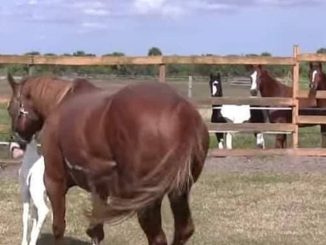

Leave a Reply